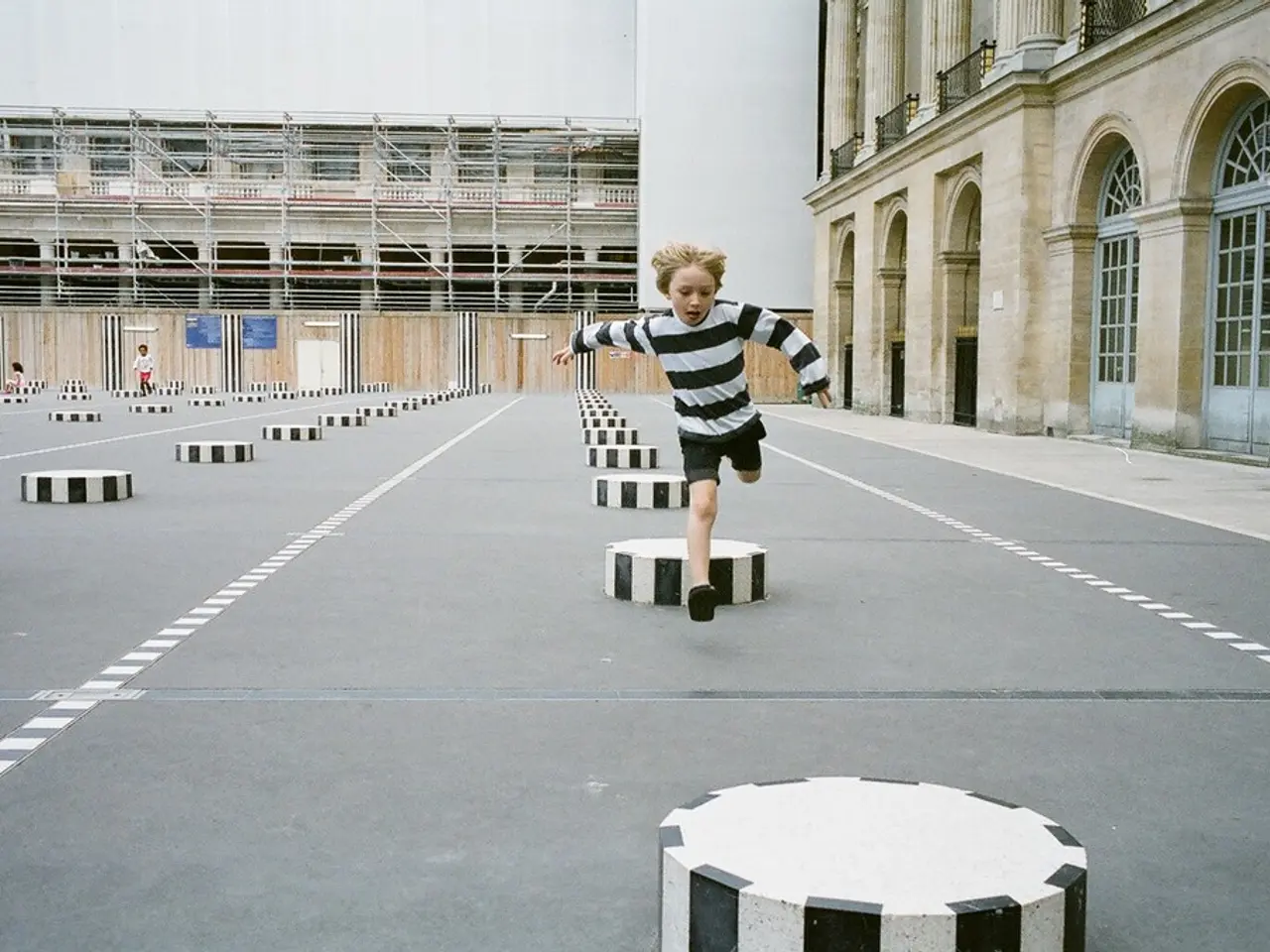Encouraging Children's Emotional Understanding via Playtime Activities
Play is a fundamental aspect of childhood, offering numerous benefits for emotional learning and development. From pretend play to social play, various forms of play help children navigate complex emotions, build empathy, and develop essential social skills.
One such form of play, known as pretend or dramatic play, allows children to act out roles and scenarios, such as playing chef or doctor. This type of play supports creativity, empathy, and emotional resilience. Through pretend play, children can explore and express feelings they might not have words for, imagining life from others’ perspectives and working through complex emotions safely [1][2].
Sensory play, another essential form of play, engages children’s senses with materials like playdough, water, or textured items. It encourages exploration and helps children process sensory information, supporting brain development and emotional regulation by providing a calming, hands-on outlet [1][3].
Social play, including group games and cooperative activities, teaches children teamwork, communication, and how to navigate relationships. This kind of play is crucial for understanding social cues and managing emotions in social contexts [1].
Constructive play, which involves building or creating, fosters problem-solving and patience. While primarily cognitive, it also enables children to express frustration, satisfaction, or pride as they design and adapt their creations [1][2].
Physical play, such as running and jumping, improves coordination and energy release, indirectly supporting emotional well-being by reducing stress and increasing confidence [1][2].
In summary, pretend play is particularly effective for helping children learn and express emotions because it builds empathy and allows emotional rehearsal. Sensory play and social play also play important roles in emotional development by providing calming sensory experiences and opportunities for emotional communication and regulation [1][2][3]. Adults supporting these play types by joining in or providing materials can enhance these emotional learning benefits [4].
For more insights on the role of play in emotional development, read the article "Role-Play Helps Kids with Emotions" at https://anybabycan.org/blog/pretend-talk-emotions/.
Johanna Cutajar, a Master in Counselling graduate from the University of Malta, emphasizes the importance of play in children's emotional development. Through dramatic play, children build emotional understanding by reliving stories and practicing coping mechanisms. The playground and surroundings become imaginative settings for exploring and expressing emotions through storytelling [5][6]. Open spaces provide children with opportunities to express themselves physically, making play an integral part of childhood development and contributing to overall well-being and development.
- For a holistic approach to a child's health-and-wellness, incorporating fitness-and-exercise, such as physical play, can indirectly support emotional well-being by aiding in stress reduction and enhancing confidence.
- Just as sensory play engages children's senses to support brain development and emotional regulation, participation in fitness activities can contribute to the development of mental health, providing a calming and focused environment.
- Parents who prioritize play in their parenting style can encourage their children's mental health and emotional learning, as dramatic play, like involving children in pretend roles, allows them to process complex emotions and build empathy.





